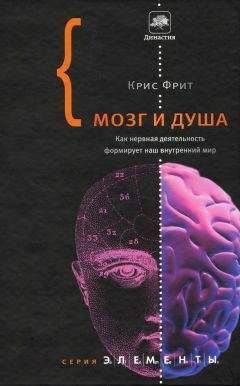tivities professionally, it is more practical to avoid liberating
their aggressions; one could even consider such generally eld-
erly people too old for therapy.
Transforming the world view of people living in countries
with normal man’s systems proves a more troublesome task,
since they are much more egotistically attached to the imagin-
ings suggested to them since childhood, making it more diffi-
cult for them to reconcile themselves with the fact that there are
matters which their natural conceptual system cannot assimi-
286
THERAPY OF THE WORLD
late. They also lack the specific experience available to people
who have lived under pathocratic rule for years. We must
therefore expect resistance and attack on the part of people
protecting their livelihoods and positions as well as defending
their personalities from a vexatious disintegration. Refraining
from such estrangement, we have to count on the accordant
reactions of the majority.
The acceptance of such psychotherapy will be different in
countries where societies of normal people have already been
created, offering solid resistance to pathocratic rule. Many
years of experience, practical familiarity with the phenomenon,
and psychological immunization there long ago produced fer-
tile ground for sowing the seeds of objective truth and natural-
istic comprehension. An explanation of the essence of macro-
social phenomenon will be treated like delayed psychotherapy
which should regrettably have been served much earlier (that
would have enabled the patient to avoid many errors) but is
nevertheless useful because it provides order and relaxation
and permits subsequent reasoned action. Such data, accepted
via a rather painful process there, will be associated with the
experience already possessed. There will be no egoistically or
egotistically inspired protests in that world. The value of an
objective view will be appreciated much more rapidly, since it
ensures a basis for reasoned activity. Soon thereafter, the feel-
ing of realism in apprehending the surrounding world, followed
by a sense of humor, would begin to compensate these people
for the experience they have survived, namely the disintegra-
tion of their human personalities caused by such therapy.
This disintegration of the prior world view structure will
create a temporary feeling of an unpleasant void. Therapists
well know the consequent responsibility of filling this void as
quickly as possible with material more credible and trustworthy
than the contents which were disabused, thus helping to avoid
primitive methods of personality reintegration. In practice, it is
best to minimize patient anxiety by making advance promises
that appropriately objectified material will be furnished in the
form of truthful data. This promise must then be kept, partially
anticipating the appearance of disintegrative states. I have suc-
POLITICAL PONEROLOGY
287
cessfully tested this technique on individual patients and would
advise its implementation on a mass scale as safe and effective.
For the people who have already developed natural psycho-
logical immunity, their increased resistance to the pathocracy’s
destructive influence upon their personalities, gained due to a
consciousness of pathocracy’s essence, may be of lesser sig-
nificance, but still not without value, since it leads to an ame-
liorated immunization quality at a less burdensome cost in
terms of nervous tension. However, for those hesitant people
who constitute the part of well-adjusted members of the new
middle class, immunizing activities furnished by an awareness
of the pathological nature of the phenomenon may tip their
attitudinal scale in the direction of decency.
The second key aspect of such operations that should be
considered is the influence of such enlightening behavior upon
the personalities of the pathocrats themselves.
In the course of individual psychotherapy, we tend to avoid
making patients aware of permanent aberrations, especially
when we have reason to believe that they are conditioned by
hereditary factors. Psychotherapists, however, are guided by
the consciousness of this condition’s existence in their decision
making. Only in the case of the results of slight brain-tissue
lesions do we decide to make the patient aware of this, so as to
help him elaborate a better tolerance of his difficulties and to
abrogate unnecessary fears. Regarding psychopathic individu-
als, we treat their deviations by means of tactful allusive lan-
guage, bearing in mind that they have a kind of self-
knowledge, and we proceed with the techniques of behavior
modification to correct their personalities, keeping the interests
of society in mind as well.
As far as operations on the macrosocial scale, it will of
course not be feasible to retain these latter cautious tactics of
activity. Traumatizing the pathocrats will be unavoidable to a
certain extent, and even intentional and morally justified in the
interests of peace on earth. Similarly, however, our attitude
must be defined by an acceptance of biological and psycho-
logical facts; renouncing any morally or emotionally charged
interpretation of their psychological deviations. In undertaking
such work, we must consider the good of society to be para-
288
THERAPY OF THE WORLD
mount; nevertheless, we must not abandon our psychotherapeu-
tic attitude and refrain from punishing those whose guilt we are
unable to evaluate. Should we forget this, we would increase
the risk of their uncontrolled reaction, which could bring about
a world catastrophe.
At the same time, we should not nourish exaggerated fears,
for example, that such public enlightenment activities will pro-
voke overly dramatic reactions among pathocrats, e.g. a wave
of cruelty or suicide. No! Those individuals described as essen-
tial psychopaths, in addition to many other carriers of related
hereditary anomalies, have since childhood elaborated a feeling
of being psychologically different from others. Revealing this
awareness to them is less traumatizing than, for instance, sug-
gesting psychological abnormality to a normal person. The ease
with which they repress uncomfortable material from their field
of consciousness will protect them from violent reactions.
What can they do if no ideology can be used as a mask any
more? Once the essence of the phenomenon has been scientifi-
cally unmasked, the psychological result is that they then feel
their historical role to have reached the end. Their work fur-
thermore takes on some historically creative meaning, if the
world of normal people offers them conciliation upon unprece-
dented advantageous conditions. This will cause overall demo-
bilization of the pathocracy, especially in those countries
where, practically speaking, the support of an ideology has
already been lost. This internal demobilization they fear so
much constitutes the second important goal.
A crucial condition and a complement of therapeutic work
must be forgiveness for the pathocrats as derived from under-
standing, both of them and of the signs of the times. This must
be effected by means of correspondingly amended law based
on comprehension of man and of the processes of the genesis
of evil operating within societies, which will counteract such
processes in a causative manner and supersede the former “pe-
nal” law. Forecasting the creation of such law must not be
treated merely as a psychotherapeutic promise; it must be sci-
entifically prepared and thereupon effected.
POLITICAL PONEROLOGY
289
Forgiveness
The contemporary evolution of legal concepts and democ-
ratic social morality is geared toward dismantling the old tradi-
tions of maintaining law and order by means of punitive re-
pression. Many countries have abandoned capital punishment,
disturbed by its genocidal abuses during the last world war.
Other punishments and the methods of their execution have
also been mitigated, taking psychological motivation and the
circumstances of the crime into account. The conscience of the
civilized nations protests against the Roman principle Dura lex
sed lex, and, at the same time, psychologists discern the possi-
bility that many presently unbalanced people can revert to
normal social life thanks to appropriate pedagogical measures;
practice confirms it only partially, however.
The reason is that mitigating the law has not been balanced
with the corresponding methods of stifling the processes of the
genesis of evil as based upon its comprehension . This pro-
vokes a crisis in the area of societies’ anti-crime protection and
makes it easier for pathocratic circles to utilize terrorism in
order to realize their expansionist goals. Under such conditions,
many people feel that returning to the tradition of legal severity
is the only way to protect society from an excess of evil. Others
believe that such traditional behavior morally cripples us and
opens the door to irrevocable abuses. They therefore subsume
others’ life and health to humanistic values.
In order to emerge from this crisis, we must galvanize all
our efforts in a search for a new road, one which would both be
more humanitarian and would effectively protect defenseless
individuals and societies. Such a possibility exists and can be
implemented, based on an objective comprehension of the
genesis of evil.
In factual essence, the unrealistic tradition of a relationship
between a person’s “crime”, which no other person is in the
position to evaluate objectively, and his “punishment”, which
is rarely effective in reforming him, should be relegated to
history. The science of the causes of evil should strengthen
society’s moral discipline and have a prophylactic effect. Often
merely making a person aware that he was under the influence
of a pathological individual breaks the circle of destructiveness.
290
THERAPY OF THE WORLD
An appropriate psychotherapy should therefore be permanently
included in any measures to counteract evil. Unfortunately, if
someone is shooting at us, we must shoot back even better. At
the same time, however, we should bring back the law of for-
giveness, that old law of wise sovereigns. After all, it has pro-
found moral and psychological foundations and is more effec-
tive than punishment in some situations.
The codices of penal law foresee that the perpetrator of a
penal act who, at the time of his transgression, was limited in
his ability to discern the meaning of the act or to direct his own
behavior as a result of mental illness or some other psychologi-
cal deficiency, receives a lesser sentence to the appropriate
degree. If we should therefore consider the responsibility of
pathocrats in the light of such regulations and in light of what
we have already said about the motivations for their behavior,
we must then considerably mitigate the scope of justice within
the frame of existing regulations.
The above-mentioned legal regulations, which are more
modern in Europe than in the U.S.A., are rather outdated eve-
rywhere and insufficiently congruent with bio-psychological
reality. They are a compromise between traditional legal think-
ing and medical humanism. Furthermore, the legislators were
in no position to perceive macrosocial pathological phenomena
that dominate individuals and significantly limit their ability to
discern the meaning of their own behavior. Susceptible indi-
viduals are sucked in surreptitiously, since they are unaware of
the pathological quality of such a phenomenon. The specific
properties of these phenomena cause the selection of attitudes
to be decisively determined by unconscious factors, followed
by pressure from pathocratic rulers, who are none too fastidi-
ous as to their methods, not even with regard to their own ad-
herents. How should the degree of penal mitigation then judge
them fairly?
For instance, if essential psychopathy is virtually 100% pre-
dictive concerning attraction to and inclusion in pathocratic
activity, should a judgment recognize similar mitigation of
punishment? This should also be applied to other hereditary
anomalies to a lesser extent, since they too have proved to be
primary factors in the selection of attitudes.
POLITICAL PONEROLOGY
291
We should not fault anyone for having inherited some psy-
chological anomalies from his parents any more than we fault
someone in the case of physical or physiological anomalies
such as Daltonism. We should also stop blaming people who
succumbed to traumas and diseases, leaving brain tissue dam-
age behind, or those who become the object of inhuman peda-
gogical methods.
In the name of their good and that of society, we should use
force with regard to such people, sometimes including forced
psychotherapy, supervision, prevention, and care. Any concept
of blame or guilt would only make it more difficult to behave
in a way which is not only humanitarian and purposeful, but
more effective as well.
In dealing with a macrosocial phenomenon, particularly one
whose life is longer than an individual’s active life, its perma-
nent influence forces even normal people to adapt to a certain
degree. Are we, whose instincts and intelligence are normal
and, according to the criteria of our moral world view, in the
position to evaluate the guilt of these others for actions they




